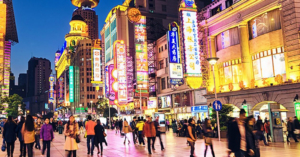>> Hey!
>> The 2020 Calendar is out now.
>> Click here
China’s cross-border e-commerce & domestic e-commerce market continues to see high double-digit growth year on year. A recent publication from the Chinese government mentioned that between January and October 2018 retail imports of cross-border e-commerce reached 67.2 billion yuan in China, up 53.7% year-on-year. Additionally, data provided by the Ministry of Commerce showed that, by 2020, online retail sales will reach 9.6 trillion yuan, of which social e-commerce sales are expected to account for 31.3%. These numbers show the importance of digital marketing in China.
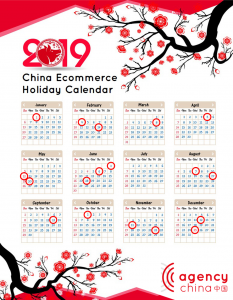
In this fast-growing consumer market, whether you are planning on entering the market in 2019 or you are already competing for consumers attention, being knowledgeable about the different kinds of e-commerce holidays is key to win!
Similar to previous years AgencyChina made the China E-commerce Holiday Calendar for 2019 to help your brand make a winning content plan.
January 1st: New Year
Admittedly the New Year celebration is not a typical day for e-commerce holiday, in China nor the rest of the world. However, it is a great moment for brands to do a kind of “warm-up” promotion leading up to the festivities. Especially targeting the younger generation as they enjoy celebrating New Year more than their parents do. And they often shop online to buy cosmetic and new clothes to wear to the parties. Research by AlphaWise, Morgan Stanley shows that cosmetics accounted for 12% of all cross-border ecommerce in China in 2016, and this has only increased since.
On this day, make sure you don’t run exactly the same promotional campaign as you did last year, as Chinese youngsters will notice and worse – get bored. This holds for most promotions of course!
February 4th: Chinese new year
For the Western New Year your brand could focus on the younger generation, but for Chinese Lunar New Year, the “parents’ generation” should not be forgotten. They are still represent a big share of online consumption. Since they are busy with work and taking care of their family, shopping for New Year’s groceries or gifts directly online is a trendy way nowadays. We recommend you use this occasion to bond with your customers by wishing them a Happy New Year and thanking them for their support throughout the year. Launch for example New Year promotions with red and pig as a theme as 2019 is the year of pig in China.
The big player Tmall always runs its campaign for Chinese Lunar New Year, which focuses on the promotion of groceries, known as “阿里年货节” which translates to “Ali New Year Festival”. It runs from the 21st till the 28th January.
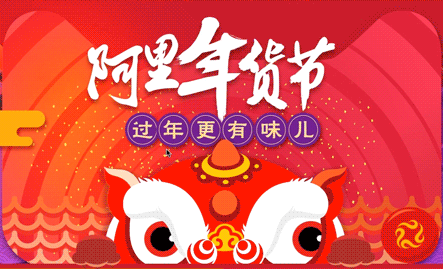
February 14th: Valentine’s Day
Chinese couples grasp at every opportunity to express their love for each other. And even though Valentine’s Day on February 14th is originally a Western holiday, China has adopted it is one of their many days to celebrate love. It is a good opportunity for brands to promote products that represent love or presents that show how much the couples care for each other. Every year the interactive campaigns get more and more exciting allowing couples to interact with the brand and win offers and coupons or simply buy that one exclusive bag or giftset for their beloved. Don’t miss out on the heart shaped craziness!
March 8th: Women’s day
The real competition among ecommerce platform starts from International Women’s day. As a result of the increasing consumption power in China, different ecommerce platforms have created their own campaign in recent years to celebrate this day. In 2018 for example, VIP launched campaign called the “Food Beauty Day” (食尚女生节) which focused on the promotion of eatable food products for ladies; Tmall has it’s “Queen day” (天猫女王节) and JD.com launched “JD butterfly day” (京东蝴蝶节)which focuses on female cosmetics. For 2019 we still recommend going with a campaign or promotion for the ladies, but for the exact campaign content? Think out of box!
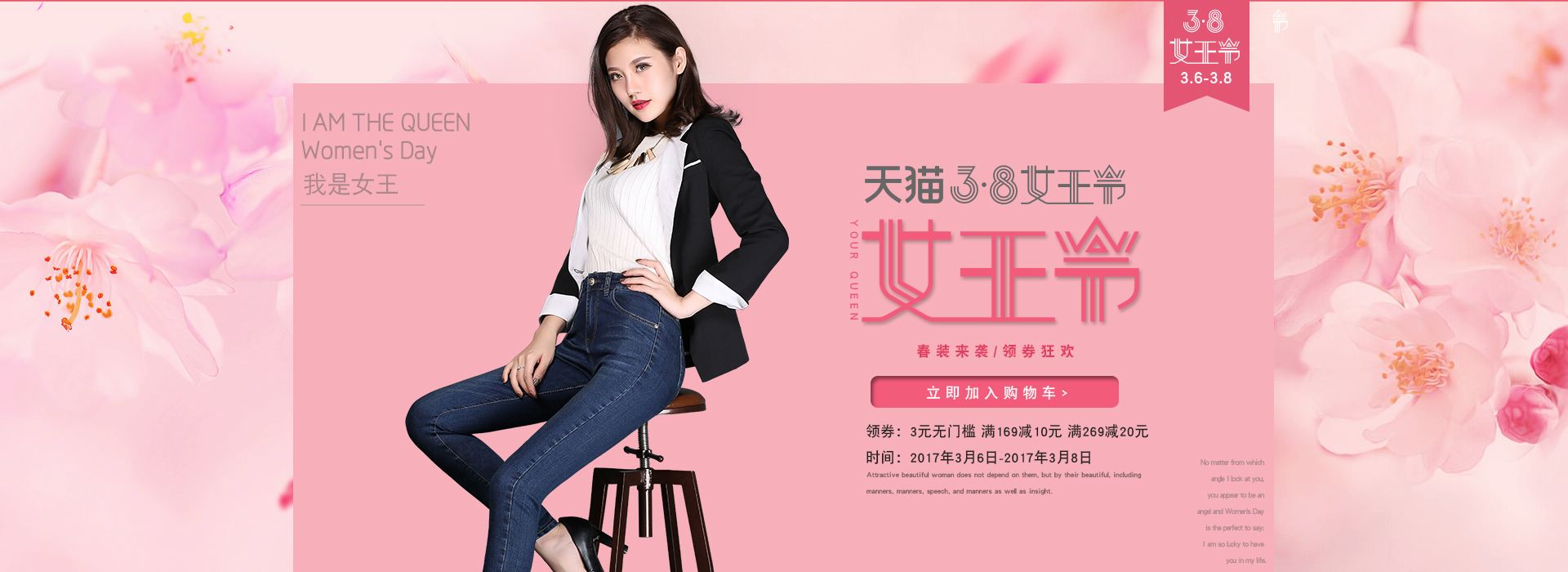
April 5th: Tomb sweeping day
To commemorate their ancestors Chinese people get 3 days’ holidays around the 5th of April. They visit and maintaining the graves and burn “sacrificial money” in honour of the dead. Hence, the festival has evolved into an occasion for people to go on a 1- or 2-days trip back home or for the younger generations to holiday destinations close by. For brands it is important to coordinate promotional campaigns accordingly. Promotions of short-distance travel packages, travel-related products and sportswear are likely to bring additional traffic. Especially when targeting China’s younger generation, hiking trips or sports related activities are popular.
May 12th: Mother’s Day
Mother’s Day is still a big thing in China as Chinese culture treasures the value of “filial piety”, or respect for one’s parents and grandparents. The opportunities for brands are endless. You can either focus on a mother’s needs, a child’s way to show gratitude, or offer a way for children who don’t live close to their mother to show how much they miss her. From a marketing perspective, promotion of cosmetic packages, health care packages or jewellery attract the widest audience around this day. It is best to start planning for the promotions two weeks in advance and don’t shy away from emotionally loaded campaigns, you never know, yours might go viral!
May 20th: “Wo Ai Ni” Day – Family Day
May 20th or 520 is known as the modern day Valentine’s Day in China because “Five Two Zero” in Chinese sound like “I love you”. Traditionally this day, like the regular Valentine’s Day, is based on the tradition of men showing their love for women through gifts. The best audience for marketers to target is still men born post ‘80s and ‘90s searching for the perfect gift for their partner. However, starting last year some ecommerce players have started changing this day of Love into a Family day. Instead of focusing on couples Tmall launched a campaign in 2018 targeting families, especially moms. During your preparations for this holiday, you could take a page from the Tmall playbook and go with promotional campaigns featuring baby and mother products which seemed to be well received last year.

June 1st: Children’s Day
Children’s Day has become a popular shopping festival over the years in China, with promotions beginning at the end of May and lasting through the first week of June. It is a great opportunity for brands to integrate online and offline strategies in order to sell toys and children’s apparel. For your marketing team it is important that they create campaigns that focus on the children, not just the parents, as it is common for parents to take their children to the store to choose their own gifts.
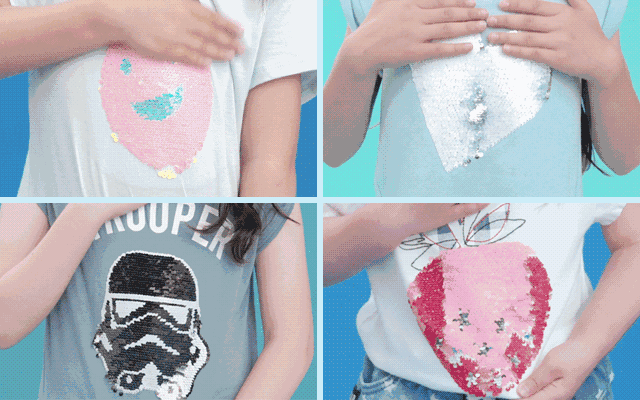
Image: GAP’s Bling Bling Clothes Campaign
June 6th: Taobao 66 Festival
The Taobao 66 Festival is Taobao’s mid-year promotional activity. It is a creative feast that cannot be missed for both sellers and consumers. Because even though it might now be a Taobao only festival where they use clever personalized recommendation and other diversified interactive ways to convince consumers to shop more, we all know that this is how “Double 11” started as well. And look at the market now, every online platform, every shopping mall and even the hospitals join in. So, it might be an opportunity for you and your team to be creative with your campaigns to attractive an audience that would otherwise go to Alibaba’s platforms to shop.
June 18th: Shopping Carnival
Every year we celebrate our own birthdays, and so does JD.com. Why do you ask? And the answer in China is, why not? During this day JD.com launches a series of large-scale promotional activities to thank it’s consumers for their support. And it is a huge success. JD.com’s 6.18 Shopping Carnival and Tmall’s Double 11 are the biggest ecommerce celebrations of the year in China. In 2018, JD.com reached sales of 159.2 billion on the day. From a marketing perspective, comprehensive campaigns that include free shipping, promotion codes and big discounts to promote your products are recommended. However, if you want to participate in the 6.18 madness – and we think you should – be sure to realise it takes more than just throwing up a promotion on different ecommerce platforms, a good campaign idea might just be the key to winning the ever-increasing competition.

August 7th: Qi Xi
Traditional Chinese Valentine’s Day aka “Qixi” (七夕) falls on Aug 7th this year and is another big day that brands should not missed out on. Gifting is engrained in Chinese culture and there are never enough occasions to buy each other gifts. So, whether you have the budget to make a special handbag for the Chinese market like Dior did last year with their “DiorAmour” handbag, or whether you keep it small with a personalized Valentine’s Day card in a Mini Program like New Look did last year. Everything goes, as Alibaba also indicates, the number of people searching for flowers, roses, and chocolates on online shopping websites increases dramatically around Qixi. So be sure to join in!
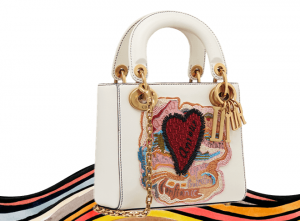
Image: The “DiorAmour” handbag. Courtesy photo
August 16th: VIP Middle Year Festival
Taobao is not the only platforms with a mid-year discount festival, VIP.com also hosts its very own special sale promotion activity right in the middle of the year. Whether you are a clothing brand, beauty & makeup brand or maternal and infant brand, everyone is offering big discount on that day. Promotion campaigns together with KOLs might help your brand stand out among competitors. Not sure what a KOL is? Click here to read more.
September 13th: Mid-Autumn Festival
In China, the Mid-Autumn Festival is a thousand-year-old celebration where families gather to partake in activities to celebrate the moon. On the day, family members and loved ones or friends like to buy mooncakes or moon related products to show their love and appreciation for one another. It’s a great time to promote small gift items. Make sure to stock up on them before the festival, and feel free to promote and share your campaigns well into the actual festival itself, as catchy and unique items tend to sell well throughout the festival.
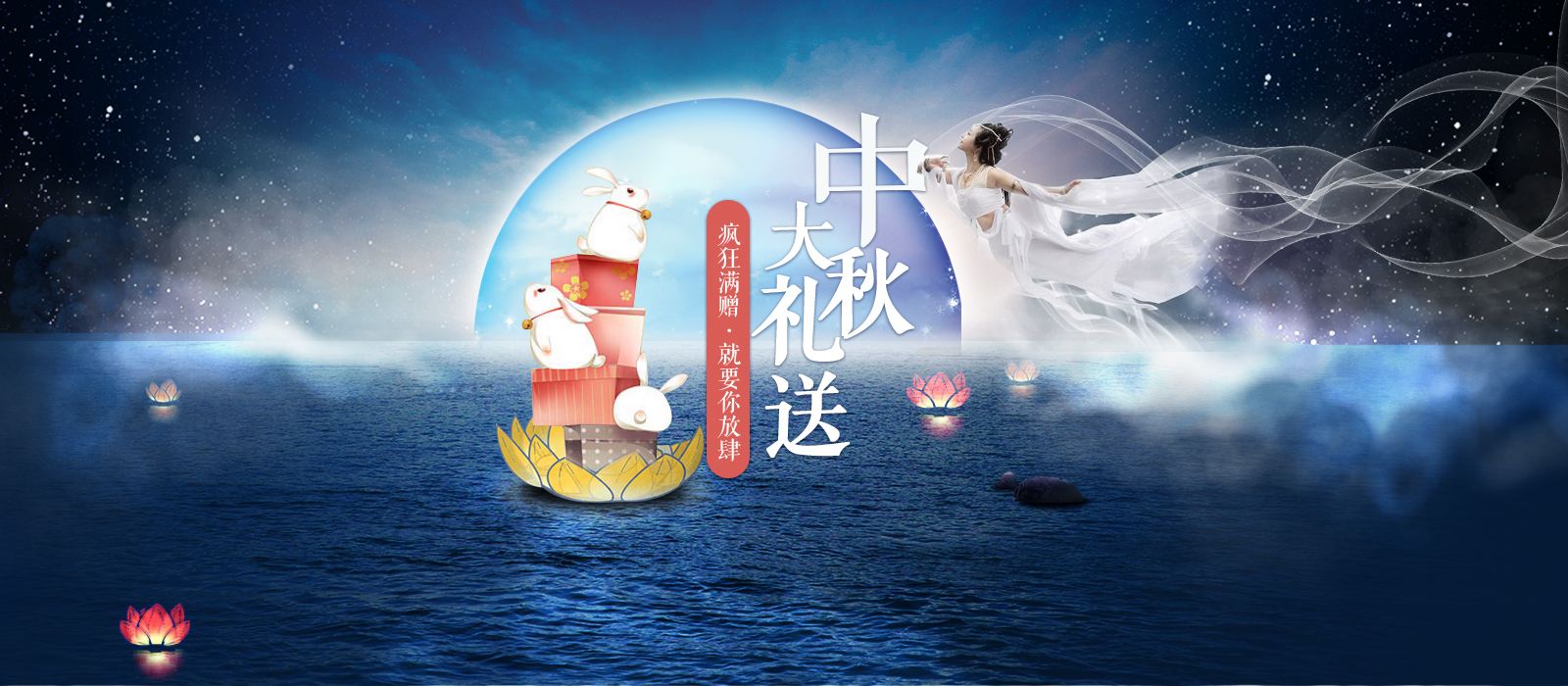
October 1st: National Holiday
National Holiday, also known as Golden Week, is one of the longest public holidays in China. It sees the highest number of Chinese travelling internationally, thus is travel industry gold. Therefore, National Holiday is a great opportunity to run a comprehensive campaign including package promotion, promotion codes, and luck draw campaigns to interact with your customers around the theme of traveling. A bit similar to Tomb Sweeping Day but try to think bigger for this holiday, the largest share of the traveling related spending’s is done around this time.
November 11th: Double 11
The largest ecommerce festival of the year in China is on November 11, better known as Single’s Day or Double 11 (双十一). What started out as a day to celebrate Single people as a counter weight against multiple Valentine’s Days was taken by Alibaba and turned into a money maker. China’s voracious appetite for online shopping really shines on this day when billions of dollars are spent in mere minutes. According to Alibaba the Single’s Day record was broken yet again last year with US$30.8 billion in sales in 2018. And for years now all the other online platforms and offline stores around China are joining in to take their piece of the pie. Hence, China’s Singles’ Day is now about more than just sales, it has become a social event for consumers. We suggest brands, stores and platforms to start preparing a campaign at least a few months in advance. Additionally, in order to respond adequately to this festival, it is wise to plan your inventory in advance and make sure you invest in delivery, as slow delivery and lost packages are common issues occurring during 11.11. But the most important thing to remember is that the sky is really the limit with this day in China!

November 29th: Black Friday
Two of the world biggest ecommerce festivals take place in November. China’s ‘Double 11’ and Black Friday originating in the US. Originally used to describe the heavy and disruptive pedestrian and vehicle traffic that would occur on the day after Thanksgiving, Black Friday has long been setting its own records in sales. In 2018 the 23rd Black Friday reached US$6.3 billion in online sales which compared to China’s Double 11 might not seem like a lot but given the fact that Black Friday is still largely offline focused it is certainly not bad. The massive difference in online sales represents the contrast between US and China retail ecosystems as in China all sales happen almost exclusively online. But now Black Friday could be making its way into China and offering brands the opportunity to target consumers interested in foreign products with a campaign that is build around a Western promotion day. Do you have the next most original tag line for the Chinese market?
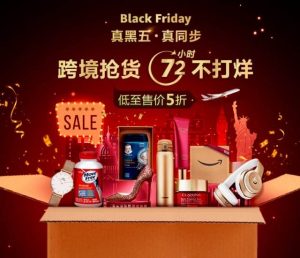
December 12th: Double 12
The Double 12 shopping festival is the last of the biggest ecommerce shopping festivals before the end of the year. Founded by leading ecommerce players Taobao and JD.com Double 12 is similar to Double 11, and offers a great opportunity to run a campaign including free shipping, promotion codes, and discounts to promote your brand in the final sprint for consumer attention.

December 25th: Christmas
Although Christmas is not a traditional Chinese holiday it has been getting more popular over the last few years, especially among the younger Chinese generations. Younger generations see the holiday more as a fashion related day for hip parties and fancy dinners with friends, rather than a family gathering. So, make sure you feature a variation of not too expensive gifts in your campaign, and even though it is the end of the year and your team has probably spent all its creative energy already try to make sure this last campaign is not boring. Making sure your campaign and products look trendy is an important factor to attract the younger generation to spend their last money of the year on that colourful scarf or that extra shiny lipstick.
Wow! Wrapping up you might already be impressed (or overwhelmed) by the amount of e-commerce shopping festivals in China, and there are even more! But the point is not to convince you to participate in all of these, it is merely to give you a well needed overview of the most important once.
We strongly recommend you choose the festival(s) that fit your brand’s message best. Not necessarily all brands have to go for the big festivals like Double 11. Finding the right channels and making a strong and coherent marketing campaign in advance is worth much more.
If you are not sure which channels you should choose or what ways you can use to convince your future Chinese consumers to buy your products, we at AgencyChina would love to consult and together we will make sure you grow your business in China!

